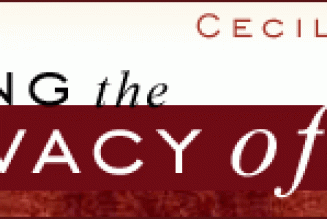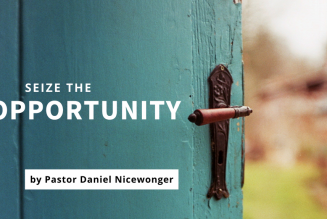
What you believe about God changes everything. It affects how you love, work, live, marry, parent, purchase, and worship. Think of just a few popular views that people have about God: Is God an impersonal blob who is uninterested in the world except for figuring out who the good and bad people are? Is “god” a karma vibe making sure everyone gets what they deserve? Is God a myth that weak, stupid, or oppressive people use to console themselves or dominate other people? Is God a cosmic cheerleader who is concerned mainly with helping you achieve immediate happiness and self-actualization? Or is God someone else?
We Believe…
God reveals himself to sinners and saves them for his glory. Theology is not obscure, abstract theories about the divine. Rather, theology is the study of a personal God and how he relates to his creatures.
Some people think of theology as dry and academic, as opposed to passion and simple heartfelt love for God and people. God is a person, not just a system of ideas. But that is exactly why we should want to learn all there is to know about him and what he has told us. A husband who deeply loves his wife wants to become intimately familiar with who she is, how she thinks, and what she loves, because spouses’ knowledge of each other is an essential part of their relationship. In the same way, our knowledge of who God is, what he has done and said, and what he wants for us is essential for a relationship with him that will affect every part of our lives.
Start with the Heart
When God saves us, he makes us new. This means new lives, desires, motivations, thinking, and action. Learning, growing, and training should incorporate all of these. What our heart loves, our minds will ponder and our wills will pursue. Unless training gets to the heart level, it fails. Lots of training is exclusively for either practical training or filling people’s heads with information. But real change begins with our desires, so we concentrate on heart-level issues like worship and idolatry, love and hate, gospel and slavery.
Knowledge and wisdom are essential components to every leader’s training: biblical knowledge, theology, church history, apologetics, ecclesiology, and the like. While knowledge without zeal is abstract, zeal without knowledge is dangerous. What good is passion and knowledge without action? Philippians 2:13 says that God works in us to will and to do his good pleasure. Leaders need to have repentant hearts and solid theology so they can do the work God has called them to. Leaders need to be trained in a way that leads knowledge and passion into effective action.
We Are All Theologians
Whether we’re aware of it or not, we all have ideas about who God is, what he expects, and what our place in the world is. Our theology shapes how we live. For example, the more we understand God’s grace toward us in Christ, the more we are freed and motivated to love God and others out of the abundant grace he’s shown us. Grace motivates.
We are all theologians. The question is, are our thoughts about God true?
Justin Holcomb is an Episcopal priest and theology professor at Reformed Theological Seminary and Gordon-Conwell Theological Seminary. He has recently published Know the Creeds and Councils, and Know the Heretics (Zondervan, 2014). These amazingly accessible overviews walk readers through the most important expressions (and denials) of the Christian tradition–not with dry focus on dates and places, but with an emphasis on the living traditions of Christian belief and why it matters for our lives today. Justin has also authored On the Grace of God, and co-authored with his wife, Lindsey, Is It My Fault? and Rid of My Disgrace. You can find him on Facebook, Twitter, and at JustinHolcomb.com.










